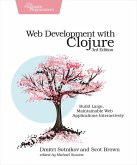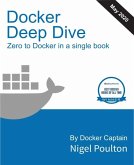Key Features
- Get to grips with the different polymorphic tools that Clojure offers
- Develop a taste for good Clojure designs through various engaging examples
- Study various design principles and learn ways to use them in your applications
Book Description
Clojure is a modern, dynamic language that you can use to develop robust, multithreaded programs. Clojure Polymorphism is a comprehensive guide that shows you how to use Clojure's features to your advantage.
The book begins by describing examples that show how to define and implement abstractions with plain functions and multimethods. Then you'll analyze these examples and separate the good and bad aspects of their design principles. You'll also learn how to perform data transformation abstraction with a plain function and discover how to write new cross-platform predicates while keeping the core of your abstraction free from reader conditionals. The later chapters explain the considerations to keep in mind when implementing Clojure protocols on the Java Virtual Machine (JVM).
By the end of this book, you'll know how to use the various polymorphic tools of Clojure to your advantage while designing your applications.
What you will learn
- Explore how polymorphism is implemented in Clojure
- Discover what design principles to use when creating and implementing abstractions
- Explore different ways to implement protocols in Clojure
- Implement various design principles while working with the JVM
- Write and compare plain functions and multimethods for transforming data
- Analyze functions and abstractions for their performance and flexibility
- Learn about common "gotchas" to avoid errors when writing code
Who this book is for
Clojure Polymorphism is useful for all programmers who want to leverage Clojure's polymorphic tools to build efficient applications. To get the most out of this book, you must be a moderately proficient Clojure programmer.
Dieser Download kann aus rechtlichen Gründen nur mit Rechnungsadresse in A, B, BG, CY, CZ, D, DK, EW, E, FIN, F, GR, HR, H, IRL, I, LT, L, LR, M, NL, PL, P, R, S, SLO, SK ausgeliefert werden.









